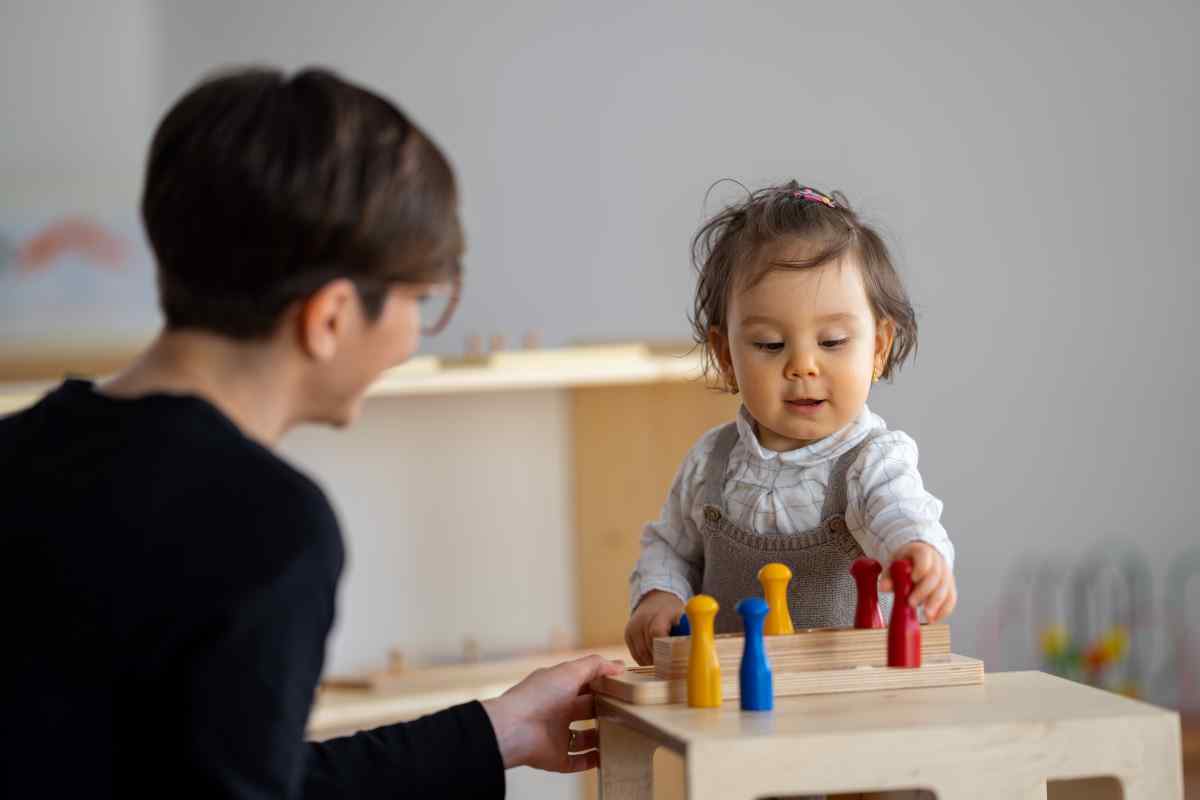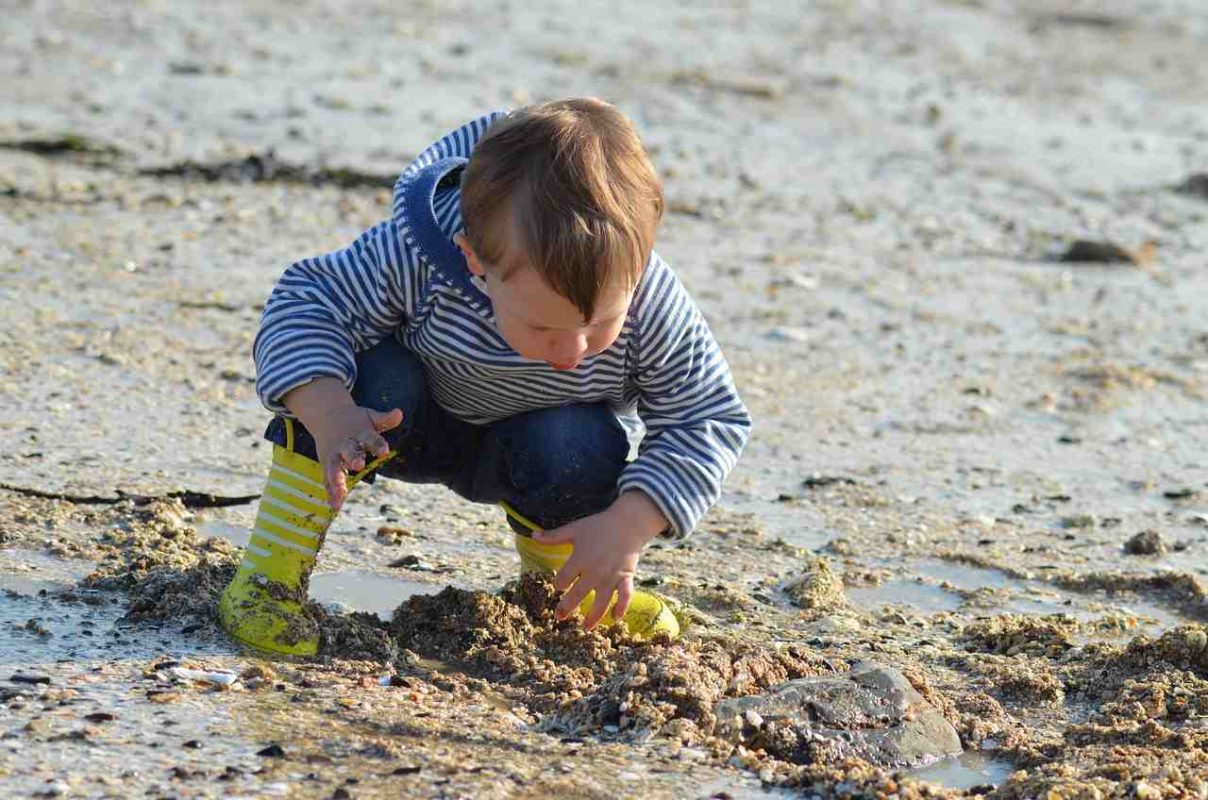Montessori education
6 Montessori Benefits: Empowering Education for Lifelong Success
The Montessori education system takes a remarkably different approach to teaching children compared to traditional schooling. Pioneered by Dr. Maria Montessori in the early 1900s, it emphasizes supporting the natural development of the whole child through hands-on learning, independence, and respect.
Understanding the core Montessori philosophy and principles can help parents recognize the incredible long-term Montessori benefits for children’s growth. This article explores the top 10 reasons why Montessori leads to empowered, fulfilled, and compassionate learners equipped for lifelong success.
Understanding Montessori Education
The Montessori method stemmed from Dr. Maria Montessori’s background in science, medicine, and psychology. She founded the first Casa dei Bambini (“Children’s House”) in 1907 for underprivileged children in Rome.
Observing the children’s affinity for Montessori materials and activities, Dr. Montessori realized their tremendous capacity for self-directed learning, given proper conditions and tools. This led to the development of the Montessori materials and child-centered approach used worldwide today.
Montessori schools and programs are guided by core principles like:
- Child-centered learning: Children take an active role in their education, guided by trained Montessori teachers.
- Independence: Children are encouraged to do tasks independently to build self-confidence.
- Freedom within limits: Classrooms provide structure but allow freedom of choice.
- Respect for the child: Teachers foster children’s innate abilities and interests.
- Mixed-age classrooms: Age groups span 3 years to encourage peer learning.

A typical Montessori classroom environment. Source: School and College
Centered around hands-on exploration, Montessori stimulates children’s curiosity and natural desire to learn.
Cognitive Development
From infancy throughout adolescence, the Montessori curriculum aligns with children’s sensitive periods for learning in each developmental plane. Sensitive periods are phases where children demonstrate intense interest in acquiring certain skills and knowledge.
Montessori materials and lessons focus on core areas like sensorial exploration, mathematics, language, science, and culture. Activities proceed from concrete concepts to abstract ideas. For example, children start by tracing sandpaper letters before progressing to writing.
Scientific studies highlight that:
- Montessori students tend to have strong math and literacy skills. A study in the US showed that 5-year-olds at Montessori preschools scored significantly higher in math and reading readiness tests than non-Montessori children.
- Montessori benefits executive functioning. Research suggests that Montessori education is associated with better cognitive flexibility, working memory, and inhibitory control.
- The hands-on approach stimulates engagement. Montessori students demonstrate more motivation and spend more time on task during work periods.
Carefully designed lessons and materials spark children’s curiosity for learning and build essential cognitive abilities.
Social and Emotional Benefits
From collaborative work to grace and courtesy lessons, Montessori classrooms help children develop empathy, respect, focus, coordination and problem-solving skills.
Key social and emotional benefits include:
- Improved social skills: Mixed-age classrooms enable younger children to learn from older peers. Older children reinforce their own learning by helping others.
- Emotional intelligence: Children learn to recognize and manage emotions through mindfulness lessons.
- Reduced behavioral issues: Montessori students tend to exhibit less aggression, defiance, and impulsivity.
- Positive community: Multi-age classes create a family-like community where children develop a sense of belonging.
Montessori mom Amanda shared, “My son who struggled to make friends at school is now popular and happy in his Montessori classroom – all because of the close-knit community.”
The holistic Montessori approach helps children grow into compassionate, socially responsible individuals.
Creativity and Problem-Solving
The Montessori method encourages children to think critically, problem-solve and create. As children choose their own work and progress at their own pace, they learn how to analyze information, ask questions and develop solutions.
Open-ended materials like colored beads for crafting, blocks for building, puzzles for problem-solving allow endless possibilities for creativity. Children are intrinsically motivated to use their imagination rather than compete for grades or external rewards.
Non-competitive classrooms lead children to:
- Learn for the joy of learning rather than comparing themselves to others.
- Freely share ideas and collaborate to find answers.
- Develop the 21st-century skills of innovation, communication and collaboration.
Montessori facilitates flexible thinking and an inquisitive spirit – key ingredients for success.
Independence and Self-Discipline
The Montessori approach is designed to cultivate independence and self-discipline from toddlerhood onward.
- Children choose their own work and see tasks through completion rather than having passive entertainment chosen for them. This builds their ability to take initiative.
- Classroom materials and furniture are intentionally child-sized to enable kids to get everything they need without relying on adult help.
- Ground rules create a sense of order, like walking carefully around the classroom.
- Teachers thoughtfully intervene to guide behavioral issues and model grace and courtesy.
These factors help students feel empowered to take responsibility for their learning and actions. Studies show Montessori children demonstrate greater intrinsic motivation and ability to work independently.
Parents can continue fostering self-discipline at home through patient, respectful parenting and involving kids in age-appropriate household tasks. The ultimate goal is raising children who are internally driven rather than externally controlled.

Personalized Learning
Montessori teachers closely observe each child to create personalized learning plans based on their interests, abilities and developmental needs. Lessons are introduced when the individual child shows readiness. There is no standardized curriculum; education is tailored to the whole child.
Students benefit from:
- Flexibility to learn at their own pace rather than being compared to peers.
- Using hands-on materials that suit their learning style.
- Mixed-age classrooms where they can find learning partners with diverse strengths.
- Shifting between individual, small group and whole class activities fluidly.
Montessori mom Christine shared, “My daughter who has dyslexia refused to go to school before Montessori. Now she loves learning and comes home talking excitedly about geology experiments she did that day!”
The Montessori approach ultimately allows each child to flourish as a unique, confident learner.
Montessori vs. Traditional Education
Montessori differs considerably from conventional schooling. Here is a comparative analysis:
| Montessori | Traditional | |
|---|---|---|
| Role of teacher | Facilitator, observer, guide | Lecturer, director |
| Curriculum | Child-centered, personalized | Standardized |
| Pace of learning | Self-directed at child’s own pace | Teacher-directed with whole class progressing together |
| Assessment | Observation-based, no grades | Testing, grades |
| Classroom setup | Stations for independent & group work | Desks facing front |
| Peer interaction | Multi-age classrooms encourage collaboration | Same-age classrooms foster competition |
| Discipline | Respect, modeling good behavior, natural consequences | Extrinsic rewards and punishments |
Rather than being teacher-driven, Montessori empowers kids to take charge of their learning process based on their unique needs and capabilities.
Montessori Benefits Across Age Groups
While Montessori is often associated with early childhood education, its benefits extend from infancy through high school:
- Infant & toddler programs nurture development during critical early years.
- The primary class for 3-6 year olds cultivates foundational academic and life skills.
- Elementary classes for 6-12 year olds apply Montessori principles for this imaginative, curious age group.
- Adolescent programs like Montessori middle and high schools provide mentoring and real-world experiences.
Montessori teacher Amanda explained, “We’re privileged to see students grow year after year. The other day, a graduate came back to proudly share she’s starting medical school!”
The key is finding Montessori schools that continue the method across age levels for continuous learning.

Overcoming Challenges and Concerns
Montessori comes with misconceptions. Some common concerns include:
- Testing: Many Montessori schools now offer test prep along with regular academics.
- Traditional subjects: Montessori covers standard subjects in developmentally appropriate ways.
- Technology: Montessori balances hands-on learning with technology integration where suitable.
- Socialization: The multi-age classrooms prevent cliques and foster connections.
Choosing a school with experienced Montessori teachers is key to ensuring student success. Observe prospective schools and speak to parents to make an informed decision.
Implementing Montessori Principles at Home
Parents can easily apply Montessori principles at home for a consistent learning environment:
- Foster independence – Have your child pour their own snack or water, dress themselves etc. based on their age.
- Limit screen time – Swap digital entertainment for hands-on activities. Go outdoors, cook, build with blocks etc.
- Model self-discipline – Follow routines, speak respectfully, pick up after yourself. Children imitate parents.
- Encourage concentration – Help your child focus on self-chosen tasks until completion.
- Be patient – Remember everything is a learning process. Respond gently without criticizing.
- Provide nature exposure – Spend time outdoors exploring plants, animals, and other wonders.
Even small measures to make your home Montessori-inspired will benefit your child!
Conclusion
In summary, Montessori offers an empowering vision of education that:
- Allows children to guide their own development.
- Instills core skills for lifelong success like independence, creativity, resilience, compassion.
- Provides flexible, personalized learning suited to each child’s interests and needs.
- Fosters a love of discovery in students across age groups, from toddlers to adolescents.
Seek out authentic Montessori schools and materials to experience the transformative power of this iconic educational philosophy developed over a century ago. Allow your child to flourish into their fullest potential as an inquisitive, confident learner.

FAQs
What is the Montessori education method?
The Montessori method is a child-centered educational approach focused on supporting children’s natural development through hands-on learning, independence, respect, and collaboration.
What are the key principles of Montessori education?
Key Montessori principles include respect for the child, focus on concrete learning, individualized pacing, prepared environments, independence, freedom within limits, and mixed-age classrooms.
How does Montessori benefit early childhood development?
Montessori promotes early childhood development by fostering independence, concentration, coordination, problem-solving, social skills, and a love of learning.
Are there Montessori schools for older children?
Yes, many Montessori schools offer elementary, middle school, and even high school programs continuing the Montessori philosophy.
What is the role of the Montessori teacher?
Montessori teachers act as unobtrusive guides, carefully observing each child and introducing lessons based on the individual’s interests and developmental readiness.
How does Montessori foster independence in students?
Montessori fosters independence by having child-sized furniture, allowing children to choose their own work, and giving them the tools to take care of classroom tasks themselves.
Is Montessori education suitable for all children?
Montessori can benefit all children, including those with learning disabilities, special needs, or other challenges, due to the individualized approach.
What are the differences between Montessori and traditional education?
Montessori emphasizes self-directed learning, multi-age classrooms, hands-on materials, and no tests/grades, unlike traditional teacher-led education with set curricula.
Are there any disadvantages to Montessori education?
Potential disadvantages include high tuition costs, lack of testing/grades, need for parent engagement, and scarcity of Montessori high schools.
How can parents support Montessori learning at home?
Parents can provide Montessori-inspired learning through activities like cooking, cleaning, gardening together and limiting screen time in favor of more hands-on learning.
References
https://amshq.org/Families/Why-Choose-Montessori/Benefits-of-Montessori
https://www.rasmussen.edu/degrees/education/blog/pros_cons_montessori_education/
https://www.forbes.com/sites/traversmark/2021/12/28/new-research-highlights-the-long-term-benefits-of-a-montessori-education/?sh=764604c73970
https://amshq.org/Families/Why-Choose-Montessori
https://www.namontessori.com/benefits-montessori-education/
https://www.montessoridowntown.com/10-benefits-montessori-education-child/

